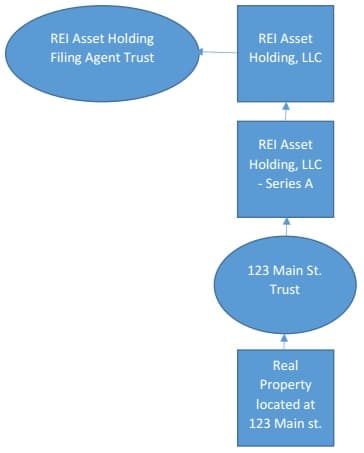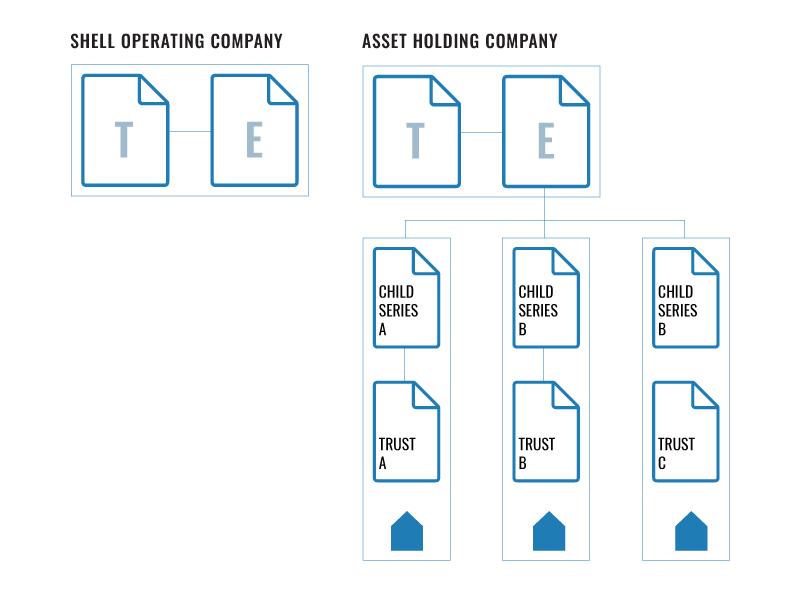Unlike the movies, you won't just get a call one day telling you that you've been named as the executor or trustee to a billion-dollar estate. Not usually, anyway.
But let's say you do.
So you’ve been named as an executor in a will or as a trustee in a trust? Now you have some serious duties to carry out. Before I explain the trustee duties and the trust executor duties, you need to know the difference between the two.
What Is an Executor?
An executor, also known as a personal representative, has the authority to administer and distribute an estate. If you were appointed as an executor (or personal representative) in a will, you will need to understand the terms of the will and who the heirs are.
In most situations where only a will is used, you will need to go to court to be appointed as the legal executor of an estate and will need court approval to transfer certain assets (such as a home.)
What is a Trustee?
If you were appointed as a trustee in a trust, you will need to understand what assets are owned by the Trust and what assets are owned outside the Trust. In general, a trust is used by individuals to avoid probate and to provide better direction and control of their estate.
If the Trust was established correctly and if it was properly funded (the trust owns the assets of the deceased person), then you will not need to go to court to get approval to administer the estate.
The Difference Between an Executor And a Trustee
The position of executor tends to be temporary, while someone could serve as a Trustee for a few months or a few decades.
Think of an executor as a "liquidator" and a trustee as more of a "manager." An executor's duties are complete once everything has been liquidated, whereas a Trustee's duties are complete when there is nothing left to be managed.
Fun fact: Usually neither an executor nor a trustee is compensated for their position.
Now that we've got that covered, let's go over the six most essential duties of executors and trustees.
Responsibilities as an Executor or Trustee
#1 Understand the Estate Documents.
Before you do anything, you need to read the estate documents. These documents will determine the distribution and management of the estate. These documents may include funeral and burial instructions. (Where and how the person wants to be buried, or where they want to be cremated, etc.)
There may also be a memorandum of personal property that outlines how specific items of personal property are to be distributed to heirs. Common items identified and handled on the memorandum of personal property are jewelry, guns, and other valuables.
#2 Determine the Assets.
You will need to determine what assets are included in the estate. Sometimes this can be difficult to determine, as the deceased person may not have provided complete information as to their bank accounts, investment accounts, real estate, retirement accounts, and life insurance policies.
Many children who become executors and trustees have a difficult time locating the assets of their deceased family member despite having an otherwise close relationship.
#3 Identify the Heirs.
Most estate documents such as a will or a trust will list the heirs to the estate and these heirs (AKA, beneficiaries). Usually, the heirs are clearly identified. However, what happens if the will or trust listed one of your siblings as an heir, and what if that sibling in longer living?
Does that portion of the estate go to your sibling’s surviving spouse or children or to the other siblings? Hopefully, the will or trust will state what shall occur in this instance. But in many instances, this item can be overlooked and not considered in the estate plan.
As executor or trustee, you are left to determine who shall take the place of your deceased sibling and this decision is subject to the terms of the document and state laws.
#4 Identify the Creditors.
Almost every estate has creditors who need to be paid. From credit card companies and other consumer debt to mortgage lenders with liens on real estate owned by the deceased.
As executor or trustee of the estate, you have an obligation to guarantee that all creditors' claims are paid from the estate. Failure to do so may result in liability to you as the executor or trustee or to the heirs who receive distributions from the estate.
Whether you are working with a secured or unsecured creditor, you will need to provide evidence of your position as executor or trustee, which in the case of a Will would include a copy of the Will, or in the case of, a Trust would include a copy of the certificate of trust.
In general, secured creditors such as mortgage lenders or car lenders will be paid upon the sale of the property or asset unless the estate otherwise has cash available and intends to hold these assets.
Regardless of whether the asset will be held or sold, you should immediately notify secured creditors of the death of the deceased person. Where possible, you should make sure that payments are made to these creditors to avoid late fees and other penalties.
If properties or assets subject to the secured creditor are paid, then the proceeds from the sale will resolve these debts.
As for unsecured creditors, you should notify them of the passing of your loved one. However, these creditors are not always paid in full. Don't be hesitant to negotiate with unsecured creditors, such as credit card companies. They can be negotiated with fairly easily.
Maybe start with an offer of 1/3 of the amount owed and see if the unsecured creditor will accept that amount as a payoff. While they do have legal recourse against the estate, they do face significant legal fees in probate court to collect on the debt.
If the estate must go through probate in the court, as will typically occur if there is only a will, then as executor you are required to notify creditors of the probate court action and of the assets of the estate.
Unsecured creditors then have a certain amount of time to assert their claim against the estate. Most unsecured creditors won't follow up and make a claim against the estate despite being given notice of the assets of the estate.
Look to negotiate with these creditors and if you are in probate court already, wait until they actually make a claim in the probate court (following notice of the case and deceased person's death you will be required to provide) before paying those creditors.
You have a good chance that the creditor won’t even make a claim.
#5 Conduct the Proper Process.
The estate documents and the assets of the deceased will determine the process to administer the estate. Also, if the deceased person had assets in multiple states if they only left a will, you may need to conduct probate in multiple states.
There are a number of common situations where you will need to go to court to obtain court approval in administering the estate.
In the case of a will, you will typically need to go to probate court to be appointed as executor by the court and to get court approval to transfer any real estate assets to heirs or in a sale from the estate.
Also, if the identity of heirs is in question, you may need to get approval from the court as to the proper heirs to receive proceeds from the estate.
Lastly, you may be required to go to court if the estate documents leave contradictory, improper, or confusing provisions that cause disagreement amongst heirs. In this situation, obtaining approval from the court is advisable in order to avoid claims against yourself and the estate.
#6 Final Tax Returns
As executor or trustee, you must also make sure individual income tax returns and estate tax returns are filed. This can be tricky, considering the circumstances.
For example, you must write the word DECEASED across the top of the tax return. In addition to a final income tax return, you may be required to file an estate tax return using IRS form 1041. This is required if the estate receives $600 or more in gross income.
Conclusion
Being a trustee or executor isn't easy. You may want to get some professional help to make sure everything goes smoothly.
Remember, the estate can pay the expenses of professionals and if you incur out-of-pocket expenses then the estate can typically reimburse those expenses.
One last thing you should be aware of as an Executor or Trustee. I didn't mention this in the list above, but as an Executor or Trustee, you will typically be involved closely with the heirs/beneficiaries. Sometimes this can involve drama, emotional support, and other sticky situations. For your convenience, we've created an additional Survival Guide for Trustees and Executors. You can make it. We believe in you and are here to support you through this process if you need help.






